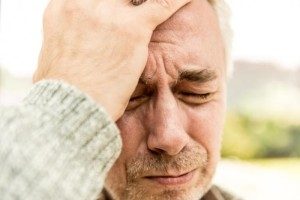This is a very important question to determine when it comes to depression. Situational depression is something that most of us face at some point in our lives. It is a short-term form of depression that follows a traumatic disruption to life or a series of losses. Often a situational depression has layers to it and can begin with a trigger like a job loss, divorce, the loss of a spouse or good friend, major life changes, physical illness or a transition into the ’empty nest.’ Whether a depression is situational or clinical, they feel the same and both are real.
like a job loss, divorce, the loss of a spouse or good friend, major life changes, physical illness or a transition into the ’empty nest.’ Whether a depression is situational or clinical, they feel the same and both are real.
Situational depression is also known as “Adjustment Disorder with Depressed Mood” and often resolves over a period of time and can be lessened by talking it through. Many people who struggle with depression do not want to talk about the source of their pain but it really can help the depression to move through and not get stuck. Stuffing the emotions tends to fuel the depression, making it last longer. Pushing something down doesn’t make it go away it can just make it come out sideways. Situational depression often comes from the struggle of having to deal with a new and unwanted life change. Recovery is possible when a person comes to terms with the new situation. This doesn’t mean you accept or condone the change but you do need to accept the reality of what you are facing. For example,  losing a family member to death may feel unsurmountable and a person may feel unable to move ahead until they are able to accept the reality that the person is gone.
losing a family member to death may feel unsurmountable and a person may feel unable to move ahead until they are able to accept the reality that the person is gone.
If a situational depression does not get resolved it can lead to a clinical problem — Major Depressive Disorder. Clinical depression is more severe and is longer in nature and requires more active treatment. It is severe enough to interfere with daily functioning and can lead to time off of work. Here is a helpful template to help determine whether a person is struggling with situational or clinical depression: typically people with situational depression wake up feeling okay but as they go through the day and encounter the situation that has played into their mood, the depression tends to worsen. The more a person thinks about the triggers and problems they are facing, their mood worsens. They may wake up in a decent mood and become depressed by mid-afternoon depending on how their day is going. With clinical depression, a person often wakes up and finds the depression is already present. They may actually find that they are “waking up depressed.” They may actually find that their depression symptoms lessen as they get out of bed and go about their day. Frequently, their depression lessens as the day goes on. (This is by no means a way to fully assess depression — if you are concerned about either form consider talking to a professional about your symptoms.)
Symptoms include:
- Sleep disruption — sleeping too little or too much
- Loss of energy, like your get up and go, got up and went
- Trouble concentrating — sometimes having looping thoughts
- Depressed mood or frequent irritability
- Decrease or increase in appetite/weight
- Feelings of worthlessness, failure, inappropriate guilt or hopelessness
- Trouble making decisions
- Loss of interest in things that you used to enjoy
- Recurrent thoughts of death or suicide — or just wanting relief from the pain
- Tearfulness or feeling like you want to cry
Some helpful supports for both situational and clinical depression are:
- Keep regular sleep habits
- Do some form of physical activity to release some endorphins — even a leisurely walk or doing some housework
- Don’t get/stay isolated
- Reach out and talk to loved ones
- Go to a support group — you are not alone!
- Eat a balanced diet with some fresh non-processed foods
- Start a hobby or new leisure activity
- Don’t just stay in your head and entertain the depressive thoughts
- Don’t let the feelings drive! This is where you might need to do some things that you know are helpful even if you don’t feel like it.
- Get help as needed.
 The most effective and proven form of treatment for clinical depression is therapy and medication. Seeing a Psychologist/Therapist is a good start to get screened for depression. You could also start with your medical doctor if they are familiar with depression (you can ask the clinic if the doctor you are seeing is familiar with depression). There is help available. Please contact us at Fresh Hope Counselling for further steps and support. Visit our website at: www.freshhope.ca
The most effective and proven form of treatment for clinical depression is therapy and medication. Seeing a Psychologist/Therapist is a good start to get screened for depression. You could also start with your medical doctor if they are familiar with depression (you can ask the clinic if the doctor you are seeing is familiar with depression). There is help available. Please contact us at Fresh Hope Counselling for further steps and support. Visit our website at: www.freshhope.ca




